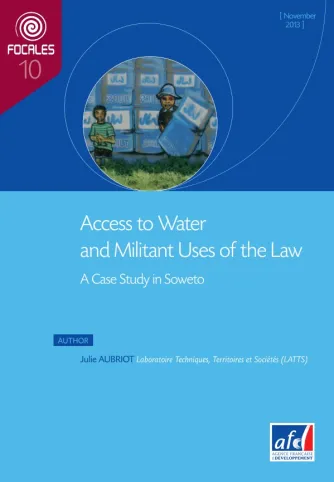Share the page
Access to Water and Militant Uses of the Law - A Case Study in Soweto
Published on

At the end of apartheid, in 1994, hopes for political, economic and social renewal are emerging in South Africa. Among the preoccupations of the new ANC government: wipe out inequalities and generalize access to basic services. Realizing the right to water, as it is recognized in the new Constitution, becomes a priority. The city of Johannesburg, committed at the end of the 1990s to a process of renewing its water policy, in 1993 launches its Gcin’Amanzi project in its largest township: Soweto. From the outset, it is the object of numerous controversies and in 2006 leads to a trial: “the Mazibuko affair.” Under the impetus of militant organizations and with the support of a human rights organization and a renowned constitutional lawyer, five Soweto residents contest two aspects of the project: the installation of prepaid water meters and the policy of free water, whose quantity is judged insufficient. This study intends to retrace the history of this “affair” and to study the repercussions of militant use of the law, by a group of underprivileged citizens, on city water policy. Researchers interested by issues concerning militant use of the law and actors in the water sector, notably those working in South countries, will find a useful illustration to anticipate the potential effects of the right to water, and to judge the effectiveness of the justiciability of the right to water, like social rights in general.
Useful Information
-
Authors
-
Julie AUBRIOT
-
Edition
-
10
-
Number of pages
-
154
-
ISSN
-
2105-5386
-
Collection
-
Focal
-
Other languages
